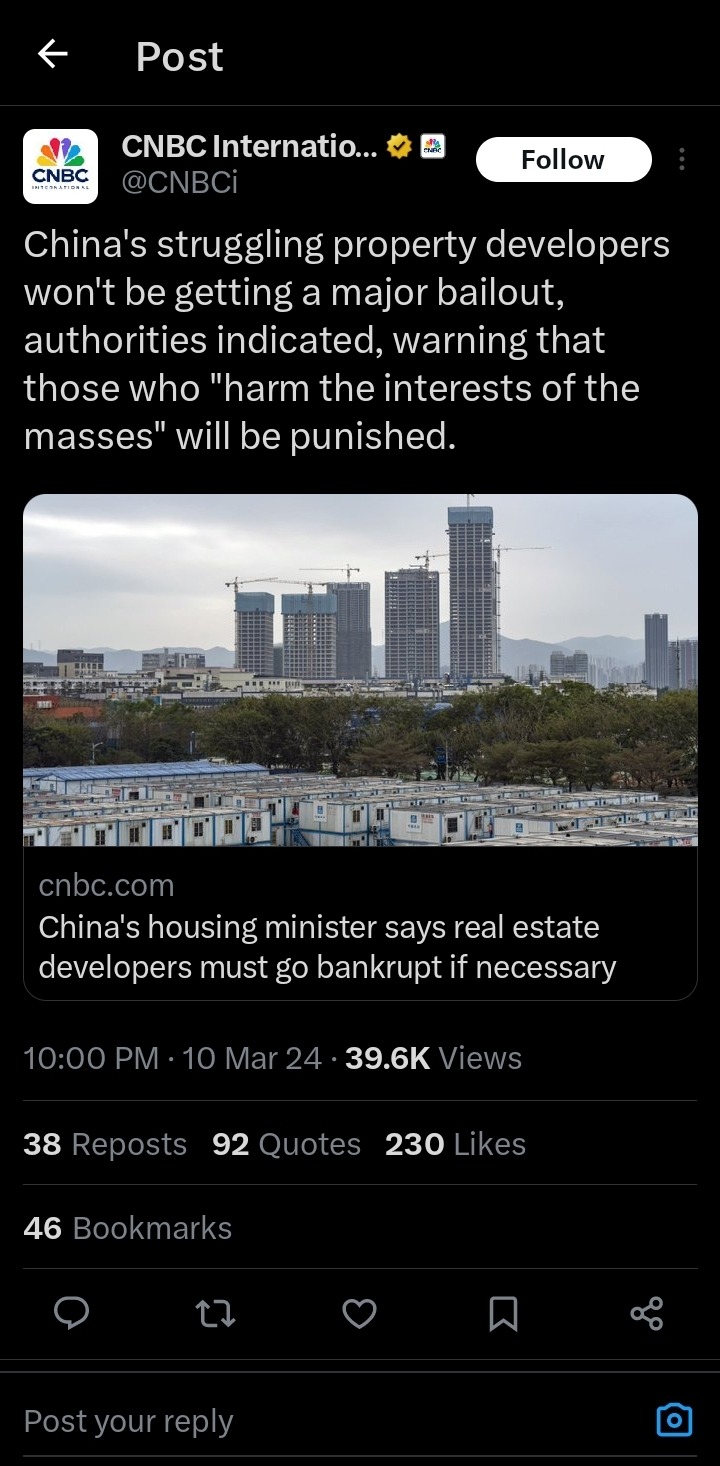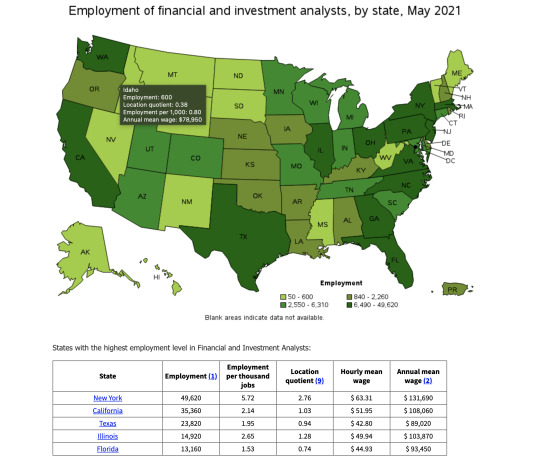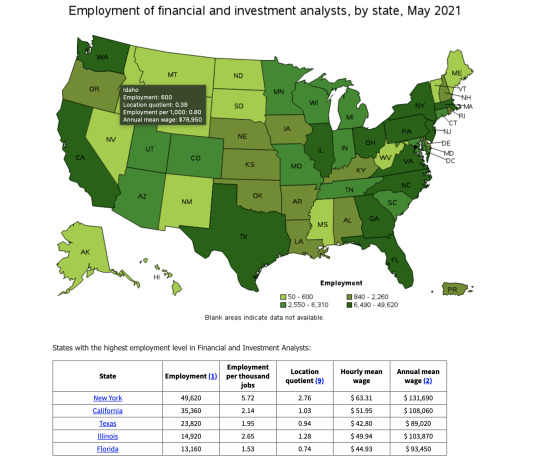#how to invest in commodities
Text
How to Invest in Commodities (as a Singapore investor)
As promised, I’ve been meaning to do an article on commodities for the longest time now.
If I am right, commodities investing might become a big part of this decade, so it’s worth spending some time to understand the basics.
Let’s talk about the commodities industries generally, and what drives the commodities market and commodities prices.
Now I know that this part might come across as being…

View On WordPress
#commodities singapore investor#financial horse blog 2023#how to invest in commodities#understanding commodities
0 notes
Text
Rare text post without any VN screenshots but
It makes me very happy when people show an interest in My Boys hehe ♡
Yuel and Tavi are very important characters to me, so it's reassuring to know the stuff I write about them isn't wholly self-indulgent (even though it is) and a few other people also like them!
The stuff I write about My Boys doesn't have a big audience, and I've received some pretty Unpleasant comments about them over the last couple of years (though not as many as I expected haha), but! I love them a lot, so I'll keep writing about them! 💪
I'd probably keep writing about them even if there was zero external interest, because they soothe my heart, but the nice comments I receive about them really do make my day!
I'll keep working hard to showcase just how cute my boys are!!! And I'll probably torture them a lot too, because that's also fun!!!
#text#the yuelverse#it's time for ebi to be overly emotionally invested in her own characters again#i spent a lot of time wondering if i should make any of my vns about my boys commercial even#because i know there isn't really a market for them#and i love them so much turning them into Commodities makes me feel bad lol...#so i'm actually amazed people are willing to spend their hard-earned money on them#honestly it's kind of wild#thank you so much!!!!!!#but yes any time anybody shows an interest in my boys it warms my heart#and brightens my day#you know not how invested i am in them hahaha
8 notes
·
View notes
Text
Sell Gold Now And Enjoy High Prices
Whatever we decide to do with our investment can change our present and future. Take for example the fact that most people sell their commodity without thinking much about the timing. If you ask any expert in the market chances is high they will tell you to always take advantage of high prices. What they mean by this is that we should never keep any commodity with us whenever its prices are high.…

View On WordPress
#As Cash For Gold#Best Place To Sell Gold In Delhi#Cash For Diamond#Cash For Gold#Cash For Gold At Doorstep#Cash For Gold Delhi NCR#Cash for Gold Dwarka#Cash For Gold Faridabad#Cash For Gold Gurgaon#Cash For Gold In Delhi#Cash For Gold In Delhi NCR#Cash For Gold In Ghaziabad#Cash For Gold In Noida#Cash For Gold India#Cash for Gold Karol Bagh#Cash for Gold Munirka#Cash For Gold Near Me#Cash for Gold Rohini#Cash For Silver#commodities#Diamond Buyer#finance#gold#Gold Buyer#Gold Jewellery Buyer#How To Sell Gold In Delhi#investing#Sell Gold#Sell Gold At Doorstep#Sell Gold Badarpur
0 notes
Text

BEIJING — China’s struggling real estate developers won’t be getting a major bailout, Chinese authorities have indicated, warning that those who “harm the interests of the masses” will be punished.
“For real estate companies that are seriously insolvent and have lost the ability to operate, those that must go bankrupt should go bankrupt, or be restructured, in accordance with the law and market principles,” Ni Hong, Minister of Housing and Urban-Rural Development, said at a press conference Saturday.
“Those who commit acts that harm the interests of the masses will be resolutely investigated and punished in accordance with the law,” he said. “They will be made to pay the due price.”
That’s according to a CNBC translation of his Mandarin-language remarks published in an official transcript of the press conference, held alongside China’s annual parliamentary meetings.
Ni’s comments come as major real estate developers from Evergrande to Country Garden have defaulted on their debt, while plunging new home sales have put future business into question.
In 2020, Beijing cracked down on developers’ high reliance on debt for growth in an attempt to clamp down on property market speculation. But many developers soon ran out of money to finish building apartments, which are typically sold to homebuyers in China ahead of completion. Some buyers stopped paying their mortgages in a boycott.
Authorities have since announced measures to provide some developers with financing. But the national stance on reducing the role of real estate in the economy hasn’t changed.
This year’s annual government gathering has emphasized the country’s focus on investing in and building up high-end manufacturing capabilities. In contrast, the leadership has not mentioned the massive real estate sector as much.
Real estate barely came up during a press conference focused on the economy last week, while Ni was speaking during a meeting that focused on “people’s livelihoods.”
Ni said authorities would promote housing sales and the development of affordable housing, while emphasizing the need to consider the longer term.
Near-term changes in the property sector have a significant impact on China’s overall economy.
Real estate was once about 25% of China’s GDP, when including related sectors such as construction. UBS analysts estimated late last year that property now accounts for about 22% of the economy.
Last week, Premier Li Qiang said in his government work report that in the year ahead, China would “move faster to foster a new development model for real estate.”
“We will scale up the building and supply of government-subsidized housing and improve the basic systems for commodity housing to meet people’s essential need for a home to live in and their different demands for better housing,” an English-language version of the report said.
next time you complain about how things are in America, consider that if you lived in some kind of scary communist country like China, you wouldn't even get to fund a bailout for the real estate company owners who ruined the economy like you can (whether you like it or not) in the good old US of A! 🇺🇲
1K notes
·
View notes
Text
One error you frequently find among Imperial Core Socialists, even ones that are otherwise well-informed and principled, is a misidentification of Imperialism's role in Late Stage Capitalism. They do recognise that Imperialism is a process that both exists and is an especially brutal form of exploitation that must be opposed by any who seek to create a better society, but they essentially frame it as merely something that the Bourgeoisie does; just another process by which this social class enriches itself at the expense of others. The Imperial Core Proletariat are implicitly treated as bystanders or even victims; their bodies destroyed and their tax dollars wasted so that those at the top of society can increase their returns on investment. They don't seem to realise how absolutely foundational Imperialism is to the current socio-economic order or how the Imperial Core Proletariat both directly and indirectly benefits from it (i.e. social programs funded by the wealth their nation receives from their participation in Imperialism, access to cheap commodities due to the terms of trade that Imperialism enforces etc.). You can't really complain about your taxes going to fund wars of Imperialist aggression when those wars maintain the very system that creates such a tax base in the first place.
That's not to say that the Imperial Core proletariat aren't exploited at all under Capitalism or that they won't be overall better off under Socialism. But even if opposition to Imperialist Capitalism is in the Long-Term interests of the entire Global Working Class, you simply can't ignore that particular sections of it have substantial short term incentives to accept or even actively participate in maintaining it. These sort of contradictions need to be acknowledged if they are to be overcome so that a unified Global Proletarian front can be advanced against the already largely unified Global Bourgeoisie. All members of the Working Class have so very much to gain, but for the workers of the world to unite some must accept that they have more to lose than their chains
901 notes
·
View notes
Text
Know about privacy policy of Commodity Samachar
Commodity Samachar keeps privacy of everything whatever details they have about their customers whether the customers is current or former customers. Read about Privacy policy on -https://commoditysamachar.com/privacy-policy-2/.
#Privacy Policy#Commodity Samachar#us commodity market#real-time commodities#commodities investment#commodity market investment#commodity market timings in india 2022#how to invest in commodities in india
1 note
·
View note
Text
Don’t think I’ll ever get over the fact that Kaz Brekker nearly shifted the economy of Ketterdam
Like if the crows managed to ruin all of Van Eck’s silos and taken out a large huge amount of the sugar supply. That’s not something that will go down anytime soon it would take years for sugar to go back to the price it was to match up with supply and demand.
This 17 year old kid who likes dogs and can never figure out how to talk to his crush. Kaz “I protect my investments” Brekker almost caused a complete disruption in the stock market and with how strongly Ketterdam is built on their economic system-
Please I need someone else who think economy is a really cool topic to understand just how much that’s insane. A 17 YEAR OLD NEARLY CAUSED A SHORTAGE OF A HIGH DEMNAD COMMODITY ITEM.
Kaz would go insane in America
#six of crows#Kaz Brekker#please guys#Kaz is insane#the price of sugar going up would cause a huge uproar in the society#this means the price of baked goods would go up#sugar just being a given to have with your coffee at a restaurant or cafe would become an additional cost#the upper class would probably buy up more sugar causing even more of a shortage for the lower class
448 notes
·
View notes
Text
Best Jobs in Finance
Best Jobs in Finance
Where are the best jobs in Finance?
The map below shows us that the typical stereotype of Financial professionals coming from the big city is probably not a stereotype at all. Based on the data, your chances of landing a job in finance in of the following states is much higher than if you go to a state like North Dakota. However, you may want to keep in mind that the competition is higher in…

View On WordPress
#based on salary#Best Jobs in Finance#Best places for high paying Financial and Investment Analysts jobs outside of the city.#Financial and Investment Analysts#Financial and Investment Analysts careers#Financial and Investment Analysts jobs#How much do Financial and Investment Analysts make in salary?#Monetary Authorities#Securities and Commodities#The best industries for Financial and Investment Analysts.#top paying salary in finance#U.S. Bureau of Labor Statistics#Where are the best jobs in Finance?#Worst places for Financial and Investment Analysts to live based on salary.
0 notes
Text
Best Jobs in Finance
Best Jobs in Finance
Where are the best jobs in Finance?
The map below shows us that the typical stereotype of Financial professionals coming from the big city is probably not a stereotype at all. Based on the data, your chances of landing a job in finance in of the following states is much higher than if you go to a state like North Dakota. However, you may want to keep in mind that the competition is higher in…

View On WordPress
#based on salary#Best Jobs in Finance#Best places for high paying Financial and Investment Analysts jobs outside of the city.#Financial and Investment Analysts#Financial and Investment Analysts careers#Financial and Investment Analysts jobs#How much do Financial and Investment Analysts make in salary?#Monetary Authorities#Securities and Commodities#The best industries for Financial and Investment Analysts.#top paying salary in finance#U.S. Bureau of Labor Statistics#Where are the best jobs in Finance?#Worst places for Financial and Investment Analysts to live based on salary.
0 notes
Text
The Surucuá community in the state of Pará is the first to receive an Amazonian Creative Laboratory, a compact mobile biofactory designed to help kick-start the Amazon’s bioeconomy.
Instead of simply harvesting forest-grown crops, traditional communities in the Amazon Rainforest can use the biofactories to process, package and sell bean-to-bar chocolate and similar products at premium prices.
Having a livelihood coming directly from the forest encourages communities to stay there and protect it rather than engaging in harmful economic activities in the Amazon.
The project is in its early stages, but it demonstrates what the Amazon’s bioeconomy could look like: an economic engine that experts estimate could generate at least $8 billion per year.
In a tent in the Surucuá community in the Brazilian Amazonian state of Pará, Jhanne Franco teaches 15 local adults how to make chocolate from scratch using small-scale machines instead of grinding the cacao beans by hand. As a chocolatier from another Amazonian state, Rondônia, Franco isn’t just an expert in cocoa production, but proof that the bean-to-bar concept can work in the Amazon Rainforest.
“[Here] is where we develop students’ ideas,” she says, gesturing to the classroom set up in a clearing in the world’s greatest rainforest. “I’m not here to give them a prescription. I want to teach them why things happen in chocolate making, so they can create their own recipes,” Franco tells Mongabay.
The training program is part of a concept developed by the nonprofit Amazônia 4.0 Institute, designed to protect the Amazon Rainforest. It was conceived in 2017 when two Brazilian scientists, brothers Carlos and Ismael Nobre, started thinking of ways to prevent the Amazon from reaching its impending “tipping point,” when deforestation turns the rainforest into a dry savanna.
Their solution is to build a decentralized bioeconomy rather than seeing the Amazon as a commodity provider for industries elsewhere. Investments would be made in sustainable, forest-grown crops such as cacao, cupuaçu and açaí, rather than cattle and soy, for which vast swaths of the forest have already been cleared. The profits would stay within local communities.
A study by the World Resources Institute (WRI) and the New Climate Economy, published in June 2023, analyzed 13 primary products from the Amazon, including cacao and cupuaçu, and concluded that even this small sample of products could grow the bioeconomy’s GDP by at least $8 billion per year.
To add value to these forest-grown raw materials requires some industrialization, leading to the creation of the Amazonian Creative Laboratories (LCA). These are compact, mobile and sustainable biofactories that incorporate industrial automation and artificial intelligence into the chocolate production process, allowing traditional communities to not only harvest crops, but also process, package and sell the finished products at premium prices.
The logic is simple: without an attractive income, people may be forced to sell or use their land for cattle ranching, soy plantations, or mining. On the other hand, if they can make a living from the forest, they have an incentive to stay there and protect it, becoming the Amazon’s guardians.
“The idea is to translate this biological and cultural wealth into economic activity that’s not exploitative or harmful,” Ismael Nobre tells Mongabay."
-via Mongabay News, January 2, 2024
#amazon#amazon rainforest#rainforest#chocolate#sustainability#ethical food#brazil#natural resources#good news#hope
279 notes
·
View notes
Text
tw - unhealthy relationships, financial abuse, reader is implied to be a sugar-baby/sex worker, unbalanced power dynamics.
Mei is a woman who can put a price on anything.
You've seen her talents first-hand. Hell, you'd only gotten together in the first place because she decided you were a commodity worth the expense, or in her words, because 'you'd be more valuable with me than anywhere else'. Some of her earliest gifts were little more to foder to prove that she had enough wealth stowed away to not only afford you, but make you hers exclusively - skin-tight diamond chokers, ornate harnesses strung with crystals and pearls, rings studded with pale sapphires that were nearly too heavy to lift. You'd kept the pricetags from everything she gave you in a drawer in your shoebox of an apartment, and as a show of kinship, she decided to keep you.
Really, you could only be thankful you fell into the hands of someone so appreciative. As someone so easy to buy, you can't think of a customer more suited to you than Mei.
Your relationship's too far along for her to be so blatant with her intentions, now, carrying a pretense of affection that means she can't slip you a stack of bills and tell you, in no uncertain terms, that you'll be spending the night with her, but she still finds ways to mark you, to make sure she's always going to be the majority shareholder of your time. All your clothes are tailor-made, her initials embroidered into everything she has designed for you, and you can't remember the last time you wore a scent that she hadn't personally selected. She's careful with what she owns, but not so careful that she isn't willing to offer you tens of thousands of yen to wear the lipstick stain she left on the side of your throat like a designer product. She has a jealous streak, despite how indifferent she tries to act. That, or she just doesn't like it when other people tamper with her investments.
It's become an ongoing joke between the two of you - her possessive habits and your attempts to provoke them. You'll straddle her thigh and slot your chest against hers and pout as you ask how much she thinks the white-haired man across the room would offer for an hour with you, and she'll purse her lips and assure you that none of her 'coworkers' could afford such a gem. Once or twice, you've managed to pester a real answer out of her, always something in the millions and delivered in a clipped tone that meant it was time to stop asking, but more often, she'll take you by the hips and ask you if you plan on replacing her so callously. It's a fair reaction. You can't say she's ever made you think you might be up for sale.
When you can't bite back your curiosity, you drape yourself across her and ask how much she would give up to have you permanently, to keep you at her beck and call without having to stifle herself with allowances and borrowed platinum cards. She likes that question, practically purrs as she promises that, to her, you're priceless. It should be more comforting than it is, but somehow, you can't shake the implication that it's something she's considered, that if there was an amount she could forward to some unknown account, she would've done it long before you'd ever made the offer. You're glad she came to the conclusion she did. You're glad that, no matter how entitled she acts to every fiber of your being, every second of your time, she knows she'll never actually own you.
You're glad that, if she changed her mind, if she ever put a price on your head and decided it was worth the loss, she's kind enough not to tell you that you've already been paid for.
#woman loving wednesday#yandere#yandere x reader#yandere x you#yandere imagines#yandere drabbles#yandere jujutsu kaisen#jujutsu kaisen#jujutsu kaisen imagines#jjk imagines#jjk x reader#yandere jjk#jujustsu kaisen x reader#yandere mei mei#mei mei x reader#mei x reader#yandere mei#yanderecore#yancore
1K notes
·
View notes
Text
Best Financial Decision Right Now Is To Sell Gold
If you cannot make a high profit after selling your investment then there is no use of purchasing it. Subtracting your selling price from the money that you have invested while purchasing that investment. To make sure that you can earn a high profit, your selling price should be significantly higher than your cost price. It is now clear that in order to get such a high price you need to keep in…

View On WordPress
#As Cash For Gold#Best Place To Sell Gold In Delhi#Cash For Diamond#Cash For Gold#Cash For Gold At Doorstep#Cash For Gold Delhi NCR#Cash for Gold Dwarka#Cash For Gold Faridabad#Cash For Gold Gurgaon#Cash For Gold In Delhi#Cash For Gold In Delhi NCR#Cash For Gold In Ghaziabad#Cash For Gold In Noida#Cash For Gold India#Cash for Gold Karol Bagh#Cash for Gold Munirka#Cash For Gold Near Me#Cash for Gold Rohini#Cash For Silver#commodities#Diamond Buyer#finance#gold#Gold Buyer#Gold Buyer Delhi#Gold Buyer In Delhi NCR#Gold Jewellery Buyer#How To Sell Gold In Delhi#investing#mutual-funds
0 notes
Text
Over half of British men show signs of body dysmorphia, a recent report found. Within the community of avid male gym-goers, a study published last year in the US found that all participants who immersed themselves in bodybuilding practices described themselves as having some degree of muscle dysmorphia.
Men, however, are less likely to seek treatment than women – despite one in three eating disorders occurring in men, according to the National Eating Disorder Association, only one in 20 people in treatment are male, Vargas says. Meanwhile, in 2016, it was reported that less than one percent of all the body image and eating disorder research was conducted exclusively on males, leading some researchers to state that this is a “silent crisis” in men’s mental health. [...]
Swami sees this intertwining of muscularity and masculinity as a relatively recent cultural change, beginning in the early 90s, when fashion and beauty industries realised the market power of targeting men, he says. Men began to be sold the idea that their bodies are non-biological commodities to be invested in, he says. And with the backdrop of evolving gender roles, Swami thinks muscle-building offers immediate agency over one’s virility: “It’s the one form of masculinity that feels like it’s malleable.”
But for Oscar*, as a transgender man, this malleability was a lifeline: while on a two-year wait list for hormone therapy, he started weightlifting to connect with his masculinity.“I thought, well, if I build more muscle, I know I can look closer to how I feel in my head,” he says.
But living within a culture that valorises the muscular physique can delay recovery, MD sufferers say. “A lot of your physical symptoms to the outward world are great,” says Mycock. As a result, self-destructive behaviours can be hidden in plain sight. “It’s hard to stomach the nuance of it because for so long, we’ve been told it’s good – and no matter what, it’s good,” he says. He adds: “Exercise should be treated more like medicine, in the sense, there’s always a list of side effects.”
532 notes
·
View notes
Text
Alienation is that form of disentanglement that allows the making of capitalist assets. Capitalist commodities are removed from their lifeworlds to serve as counters in the making of further investments. Infinite needs are one result; there is no limit on how many assets investors want. Thus, too, alienation makes possible accumulation—the amassing of investment capital, and this is the second of my concerns. Accumulation is important because it converts ownership into power. Those with capital can overturn communities and ecologies. Meanwhile, because capitalism is a system of commensuration, capitalist value forms flourish even across great circuits of difference. Money becomes investment capital, which can produce more money. Capitalism is a translation machine for producing capital from all kinds of livelihoods, human and not human.
Anna Lowenhaupt Tsing, The Mushroom at the End of the World: On the Possibility of Life in Capitalist Ruins
166 notes
·
View notes
Text
ofmd wasn't "profitable" enough but I didn't even get the feeling hbo wanted to make money off of it. They didn't promote it when s1 dropped, and the promo for s2 was erratic at best. They don't sell merch. Or physical copies. There's no bts documentaries other than what actors (shoutout to Samba ilu) make themselves in their spare time.
It took more than a full year for me to be able to watch s1 legally! I still can't access s2 legally anywhere! It's not that ofmd is unprofitable, it's that hbo refuses to profit off of it, because - well, because profiting off of it would mean investing work and money into it.
And like. Of course, when you compare it to the juggernauts hbo holds rights to, like GoT, ofmd is small fishes. But.
How on earth do these clowns think cult classics happen?
A Game of Thrones was first published in 1996 and didn't make it on the NYT beststeller list until 2011. The first edition of the first Harry Potter book was 500 pieces. And yeah, TV shows are different, but if you look at today's media landscape, would things like Star Trek, or Buffy, or Doctor Who stand the slightest chance? These things take time, is my point. A piece of media doesn't become a massively profitable, beloved classic over night. It takes time and effort to build that kind of franchise.
And the thing is! Nobody who makes these decisions even likes stories. I'm convinced that whoever is in charge at hbo, at amazon prime, even at disney, thinks storytelling is dumb and for idiots. They think it's enough to just slap the name of something people love on whatever garbage they spit out, for it to be profitable. They think it's the brand that sells: Look this has "Lord of the Rings" on it! Look, this one has "Game of Thrones", you like Game of Thrones don't you? Watch my show, boy.
But this isn't how this works. It's not the name that sells (unless, I suppose, you're the MCU, and even there one gets the impression the trick is finally stopping to work), especially not when the product is bad. People aren't idiots.
But it's not about making something good. It's not about making a meaningful piece of art, or telling an engaging story. ofmd served its purpose; it drew in all the subscribers it ever would, so there's no point in letting it go on. Even in the s2 that we did get, this is evident: the penny pinching is palpable, it's clear that the studio didn't want to spend any more money than absolutely necessary on it, and then cut the budget by 40%.
It's not about art. It never has been.
And it's not even about profit, because to be profitable eventually, stories have to be allowed to thrive first. You tell a good story first, and success happens later, often much, much later.
And ofmd was incredibly, astonishingly successful. It was the most in-demand series for weeks after the s1 finale. But even that wasn't enough, it's never enough, ofmd could have made record-setting profits and it still would have been cancelled, because -
Well, I don't know. Because we live in a bad time for art. Because Orwell was right, and stories have become commodities, like shoelaces. Because. Well. It's not about telling a story, is it?
What's the point of a story? What's the point of making something for the joy of making it? What's the point of a piece of art, existing, if it cannot be transferred into numbers for the stockholders?
idk how to end this. I hope David Jenkins finishes the story he wanted to tell, even if just for himself. I hope, against all odds, that weird, fun, heartfelt, beautiful little stories like ofmd continue to happen.
But goddammit.
#i knew this would happen but im still devastated#& i think the reason for that is. if not even something as inconsequential and silly as a fun little pirate romcom is allowed to exist#fuck#anyway ik its not that important but sometimes one just has to rant#our flag means death#thoughts
401 notes
·
View notes